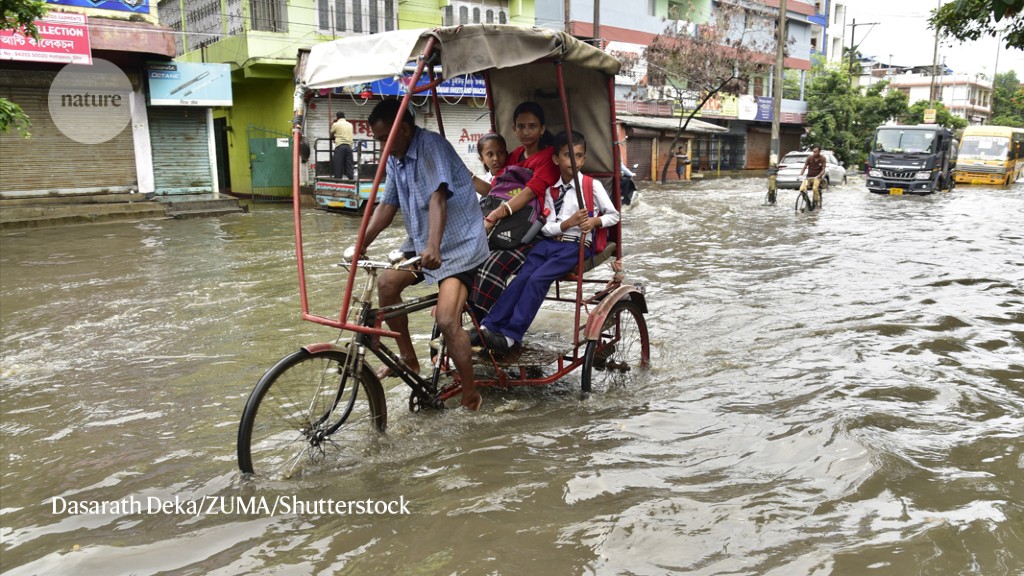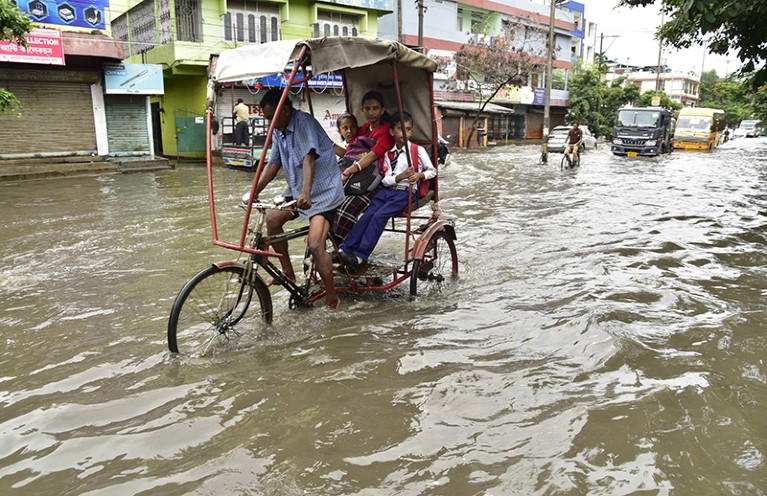The Indian Centre for Policy Research has been a leading think tank for Indian climate policy. Its future is uncertain following a funding freeze.Credit: Dasarath Deka/ZUMA Press Wire/Shutterstock
International researchers fear long-standing collaborations with Indian researchers may be imperilled following a decision by the Indian government to suspend foreign funding to Indian think tank the Centre for Policy Research (CPR), based in New Delhi. Research projects at CPR — which conducts some of India’s most influential independent policy studies — have been paused temporarily after the Indian Ministry of Home Affairs suspended the think tank’s government licence to receive overseas funds for 180 days or until further notice.
The move has sparked an outcry among Indian and foreign researchers who fear the funding pause could cripple the CPR and muzzle independent scrutiny of policy in India, which some say is threatened by Prime Minister Narendra Modi’s government.
“CPR cannot survive in its present shape,” says political scientist Christophe Jaffrelot at the National Centre for Scientific Research (CNRS) in Paris. Jaffrelot fears that the suspension will remain in place indefinitely and could spell the end of the think tank.
“This government action will scare away even potential domestic funders,” says Vinay Sitapati, a political scientist at Ashoka University in Rajiv Gandhi Education City near Delhi.
The CPR conducts research into public policy in India, including climate change, social and economic policy, governance and infrastructure. Last year it received about three-quarters of its grant funding from influential global organizations such as the Bill & Melinda Gates Foundation and the World Bank. Its domestic researchers have contributed to high-profile international studies such as the reports of the Intergovernmental Panel on Climate Change.
“A permanent suspension — or rather cancellation — would result in a significant loss in available resources to undertake our research work and fulfill our institutional mandate,” a CPR official said in response to Nature’s queries.
The suspension relates to the CPR’s registration to the Foreign Contribution (Regulation) Act, which is designed to ensure that foreign entities do not unduly influence Indian domestic politics. It was amended by Modi’s government in 2020 to increase government power to regulate and scrutinize foreign payments to organizations. The Ministry of Home Affairs has not said publicly why it suspended the CPR’s registration and did not respond to Nature’s requests for comment. Indian media reported that the suspension order alleges that CPR has used foreign funds for purposes other than those permitted under its licence. The suspension comes on the heels of a tax investigation into CPR last September.
In a March statement, the CPR denied any wrongdoing and said that it is cooperating fully with authorities. “We are in complete compliance with the law and are routinely scrutinized and audited by government authorities,” the statement says. “There is no question of having undertaken any activity that is beyond our objects of association and compliance mandated by law,” it adds.
Global outcry
Dozens of scholars worldwide have signed an open letter calling for the suspension to be lifted. “The CPR was the last independent think tank [in India] where researchers called a spade a spade,” says Jaffrelot, who signed the letter.
The CPR “has played an enormously important role in informing public policy debate in India and internationally”, says Frank Jotzo, an environmental economist at the Australian National University in Canberra.
Jotzo says that CPR, established in 1973, has a long and esteemed history in providing objective and honest analysis of government policy in India, and has at times criticized Indian government policy and plans. “That is invariably the case with any independent, impartial think tank or organization anywhere in the world,” he says.
If the CPR’s research is curtailed, it will be a huge loss for India and the international community, says Jaffrelot. He says that the institution where he’s based, Sciences Po, will be affected by the loss of collaborators on climate policy.
Matthew Lockwood, an energy and climate policy expert at the University of Sussex in Brighton, UK, says that the suspension will have a ‘chilling effect’ on research and policy debate in India. “The suspension sends a wider message that independent thinking is not wanted,” he says.
Sitapati says that CPR’s contribution to global debates benefit developing countries beyond India’s borders. “CPR is a key Indian voice in international debates, speaking not just for India but for the developing world,” he says. “On climate change, for example, CPR has played an invaluable role in shaping the conversation in a way that’s alive to developing country concerns.”
The suspension applies to new funding as well as to funding that CPR has already obtained from international sources. Its latest annual report, for the 2021–22 financial year, also listed the MacArthur Foundation and the United Nations children’s charity UNICEF among its largest funders. The Bill & Melinda Gates Foundation declined to comment on the suspension. Other funding organizations did not respond to Nature’s requests for comment.








More News
Author Correction: Bitter taste receptor activation by cholesterol and an intracellular tastant – Nature
Audio long read: How does ChatGPT ‘think’? Psychology and neuroscience crack open AI large language models
Ozempic keeps wowing: trial data show benefits for kidney disease